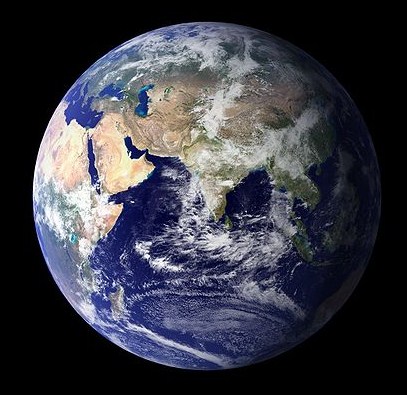Essay on Livelihood
 Nature is the birth giver to all living beings existing on earth. Though we are living in an age of cyborgs, we cannot detach ourselves from the environment we live in. Livelihood refers to the means and sources of living which we use in our everyday life. Man, like other natural creatures is born out of natural things and is a natural component. Then why is he living an artificial life today? I would like to examine this question in context of our country INDIA.
Nature is the birth giver to all living beings existing on earth. Though we are living in an age of cyborgs, we cannot detach ourselves from the environment we live in. Livelihood refers to the means and sources of living which we use in our everyday life. Man, like other natural creatures is born out of natural things and is a natural component. Then why is he living an artificial life today? I would like to examine this question in context of our country INDIA.
“If there is a country on earth which can justly claim the honour of having been the cradle of human race or at least the scene of primitive civilization, the successive developments of which carried into all the parts of the world and even beyond, the blessings of knowledge which is the second life of man, that country is assuredly India” -Friedrich Creuzer
Today, we see that most people criticize the tradition and culture of our country. New generation of India is following the western world without knowing the significance and scientific relevance of our own tradition.
Traditions are knowledge in practice. But today the knowledge in tradition is lost. I think the most possible way to regain the lost treasure is to connect our livelihood with the nature, lead a simple and natural life. The menace of solid waste management in urban areas, over use and rapid encroachment of natural land, excessive use of non-biodegradable substances and etc are evident to prove our honing civilization.
Now I would like to illustrate with examples the livelihood of ancient people of our country who lived in a traditional society which never harmed the environment and the natural ecosystem. Their closeness to nature can be determined in these ways:
A ‘Rangoli’ in front of the house ensures cleaning the house and provides feed for insects like ants.
The use of panchgavya, agnihotra, turmeric, copper vessel presents the underlying science behind some of these traditions .These traditions have great relevance even today. The United States Patent and Trade Office has granted patent for an Indian Innovation, which has proved that cow’s urine can make antibiotics, anti-fungal agents and also anticancer drugs more effective.
Turmeric is used for both treatment and prevention of Alzheimer. In ancient days, use of well water and storage of water in copper and brass container were common. Microbes are destroyed through the heat and radiation provided by the sun. It is one of the traditional ideas of water treatment in this part of the world. The key element is copper which acts by interfering with the membranes and enzymes of cells, eventually killing the bacteria. But today we see that waterborne diseases remain a major cause of illness and death in developing countries.
If we look into Life Sciences we find that Indian knowledge system is the relevance of fundamental ideas across sciences. In Tarka(logic), Mimamsa(hermeneutics)and Vedanta(philosophy)sciences the five senses of perception are applied in identifying and grading the elements of nature. They are space, wind, fire, water and earth.
In Susruta-samhita, Sutra-sthanam, Adhyayaahs, and Paragraph 29 (6th century BCE) the four-fold Flora are given. They are Vanaspati(the large trees), Vriksha(trees), Virudha(herbs), Oshadhi(medicinal plants).
In the West it is only in 1735, that Carolous Linnaeus classified plants in his book ‘Systema Naturae’.
In Mahabharatam, Santi-parva,Chapter 184, which was written in 3000BCE it is clearly mentioned that ‘just as one draws water up by the mouth and lotus stalk, plant endowed with air, drinks (water)with their feet, by the exhibition of diseases, by the reaction to diseases,(sense of) taste exists in trees.
In medicine, the teachers to whom we owe the survival of the ancient knowledge, Charaka, Sushruta and Vagbhata wrote on each and every aspect of anatomy, embryology, Obstetrics, Surgery, bloodletting, elimination therapy, Pharmacology, Cardiology, Dermatology, Autopsy,Orthopaedics and etc.
Other than this there are several ancient texts which acknowledge us with Mathematics, Physics, Astronomy, Civil engineering, Metallurgy, Chemistry and many other fields. They teach us to lead a Natural life which is never in contrast with environment.
Effects of man’s activities in the fields of agriculture, mining, industry, search for material prosperity has degraded the environment to such an extent that it is becoming difficult to regain our natural wealth. It is only through naturalizing our livelihood we can serve our mother earth. People should peep into the ancient texts of India in order to learn the symbiotic relationship of ancient man with nature.
Authors Bio;
 Stuti Tiwari is pursuing B.A.Hons 5th Sem in English literature from central University of Karnataka. You can reach her at stutitiwari20(at)yahoo(dot)com.
Stuti Tiwari is pursuing B.A.Hons 5th Sem in English literature from central University of Karnataka. You can reach her at stutitiwari20(at)yahoo(dot)com.
Do you have a flair for writing? Interested in environmental issues? Why don’t you submit an article for the GreenCleanGuide 2013 contest? For contest rules, please visit this link.



